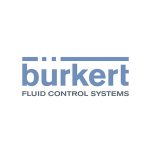The importance of efficiency within your plant
Modern process plants are hugely reliant on a variety of utilities to operate efficiently. These include everything from steam and electric power to compressed air, fuel, water, hydraulic fluids, clean in place (CIP) chemicals and gases, like nitrogen and carbon dioxide. With plants becoming increasingly more complex, process control equipment and systems must perform efficiently to ensure optimal productivity at all times. PIF spoke to fluid control experts Bürkert to find out the true importance of plant efficiencies.
Production inefficiency is one of the single most costly issues facing manufacturers today. Poor planning can lead to inefficiencies being built into plant upgrades, resulting in years of perfectly avoidable extra costs. Even the smallest of inefficiencies can manifest expensive problems later down the line.
The upshot is that manufacturers could save themselves some serious expense by exercising a little bit of foresight and some common sense planning.
Optimisation of process plant utilities
The ultimate goal for any manufacturer is to achieve the operational holy grail of optimal reliability with minimal maintenance requirements. Asset reliability can not only help to maximise return on investment but in turn, deliver a greater competitive edge. Who wouldn’t want those benefits, after all? Sounds easy, doesn’t it? But what sounds simple on paper is more often than not far from simple in practice.
This is where Bürkert comes in. The fluid control experts have been developing efficient process control equipment for more than seven decades. In the intervening years, they’ve amassed an unsurpassable wealth of technical knowledge. Not to mention the expertise of working closely with customers to develop world-beating technological solutions for the optimisation of process plant utilities and processes.
Delivering a ‘seismic shift’ in asset reliability
To illustrate the point, let’s take a closer look at two of their most innovative devices in recent years. Both of which have delivered a seismic shift in asset reliability for various industrial sectors. First up, the Bürkert Type 8098 FLOWave flowmeter. This stainless steel flowmeter has optimised production uptime and revolutionised CIP/SIP efficiency in the food and beverage industry. Thanks to its patented surface acoustic wave (SAW) technology and a hygienic one-piece body design, media wastage and dead legs are all but eradicated.
Then there’s the Type 8905 Online Analysis System, which has proved a game-changing breakthrough for the water and wastewater industries. Modular sensor cubes measure all the most important water measurement parameters, from pH to turbidity, from one compact and user-friendly system. Micro-electromechanical system (MEMS) technology enables individual sensors to be quickly and easily removed without the need for tools, with no interruption to the other sensors and minimal sample water requirements.
Bürkert can make your plant run more efficiently
In short, Bürkert has the technology and expertise to make your process plant run more efficiently. You can bet your life that they’ve got the exact devices you need to streamline your operations and maximise your return on investment. Their experienced sales engineers can point you in the right direction, not only providing optimal hardware solutions but valuable technical insights to help you maximise your system’s design and functionality. Working with Bürkert from the outset of your plant refit could save you more than you think!
For more information, please contact Bürkert today.
Get the latest process industry news
Interested in receiving even more industry-leading news from Process Industry Forum delivered directly to your inbox? Then sign up to our free newsletter. Bringing you the latest news, trends, innovations and opinion from across the process industry, our exclusive newsletter gives you all the industry insights of the moment in one, easy-to-digest bulletin. Stay ahead of the competition with regular process industry news instalments from PIF.

